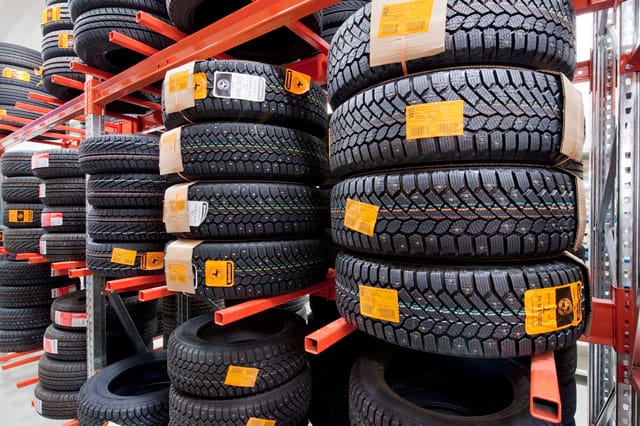Rubber Tires in Kenya: How to Choose the Perfect Tire for Your Vehicle
Rubber Tires in Kenya: How to Choose the Perfect Tire for Your Vehicle
If you’re looking for tires for your car that are affordable, aerodynamic, eco-friendly, and don’t compromise on performance, rubber tires might be the perfect match for you. These tires are eco-friendly since they are made from natural rubber rather than synthetic rubber. They also have the benefit of being cheaper than other types of tires. That said, there is a lot to consider when picking the right set of rubber tires for your car. Here is everything you need to know about rubber tires in Kenya.
What is a Rubber Tire?
Before we talk about the benefits of rubber tires, let’s start by talking about what exactly a rubber tire is. Rubber tires are the most common type of tire used on cars today. This makes sense as rubber is cheap and easy to produce. The outside of a tire is commonly made from rubber and has a sponge-like texture that can absorb shock. Since a tire is in direct contact with the road, it needs to be extremely durable to handle the weight of a car and the force of driving. That’s why the inside of a tire is made from steel cords that can withstand wear and tear. The inside and outside of a tire is then covered with a synthetic rubber or a latex-based adhesive commonly referred to as the “casing.” The casing is then wrapped around the steel and rubber core.
Why Rubber Tires Are a Good Choice
If you’re just starting to research tire options, you might be surprised to see that tires made from pure rubber are typically less expensive than other options like all-season tires. But why would anyone want to buy a tire that is cheaper and worse than other options? While pure rubber tires might be less expensive up front, they are actually a much better choice in the long run. This is because all-season tires, despite being more expensive, are more likely to need replacement sooner. Rubber tires are also better for the environment than all-season tires since no synthetic rubber is used in their production.
Things to Consider When Buying Rubber Tires
Now that we’ve talked about the benefits of rubber tires, it’s time to talk about buying rubber tires. No two sets of tires are exactly the same, which means you have to be careful while shopping for tires. Here is a list of things to look out for when buying rubber tires in Kenya. – Size: Tire size is measured in inches, so make sure your tire size is listed on your car’s registration papers. You can also use a car tire fitment guide to find the right size for your car. – Wear resistance: Rubber tires are more likely to wear out compared to all-season tires. Make sure to check out wear resistance before buying tires so you know how long they will last. – Load capacity: The weight capacity of a tire refers to how much weight a tire can carry. The more weight a tire can carry, the more likely it is to wear out. This is especially important if you travel with extra passengers or have a heavier car such as a truck. – Tread depth: The tread depth of a tire refers to how deep the grooves are in the tire’s surface. The deeper the grooves, the better the tire can grip the road. This is important especially if you’re driving in rainy or snowy conditions.
How to Buy the Right Size of Rubber Tires
Now that you know everything there is to know about rubber tires, it’s time to buy a set for your car. When picking the right size of rubber tires, you should be careful to look out for the following things. – Wheel width: The width of your tires should be listed on the tire’s sidewall. If your tires have a narrower width than your car’s wheels, you risk the tires rubbing against your car’s sidewalls which can cause damage to your tires and your car. You can avoid this by buying tires with a wider width than your car’s wheels. – Wheel diameter: The diameter of your tires should also be listed on your tires’ sidewall. But remember that the diameter of your tires is not the same as the diameter of your wheels. The diameter of your tires refers to the distance across your tire’s tread.
Pros of Rubber Tires
Now that we’ve talked about the benefits of rubber tires, it’s time to talk about their pros. – Cheap: Rubber tires are one of the cheapest types of tires you can buy. – Environmentally friendly: Rubber tires are made from natural rubber, so they are eco-friendly. – Durable: Rubber tires can last up to 5 years or longer depending on how much you drive. – Longer tread life: Rubber tires have a deeper tread that can last longer than other types of tires.
Cons of Rubber Tres
Now that we’ve talked about the pros of rubber tires, it’s also important to talk about the cons of rubber tires. – Wear out faster than all-season tires: Rubber tires wear out faster than all-season tires so you might have to replace them sooner. – Less traction on wet roads: Rubber tires provide less traction on wet roads compared to all-season tires.
Conclusion
If you’re looking for a cheap and eco-friendly set of tires, rubber tires are a great choice. They are cheaper than other tire types and don’t compromise on performance. That said, rubber tires wear out faster than other types of tires so be sure to keep an eye on the tread depth of your tires. When you’re shopping for tires, make sure to consider their size, wear resistance, and load capacity. When buying rubber tires, make sure to buy ones with a wider width than your car’s wheels.








LEAVE A COMMENT
You must be logged in to post a comment.